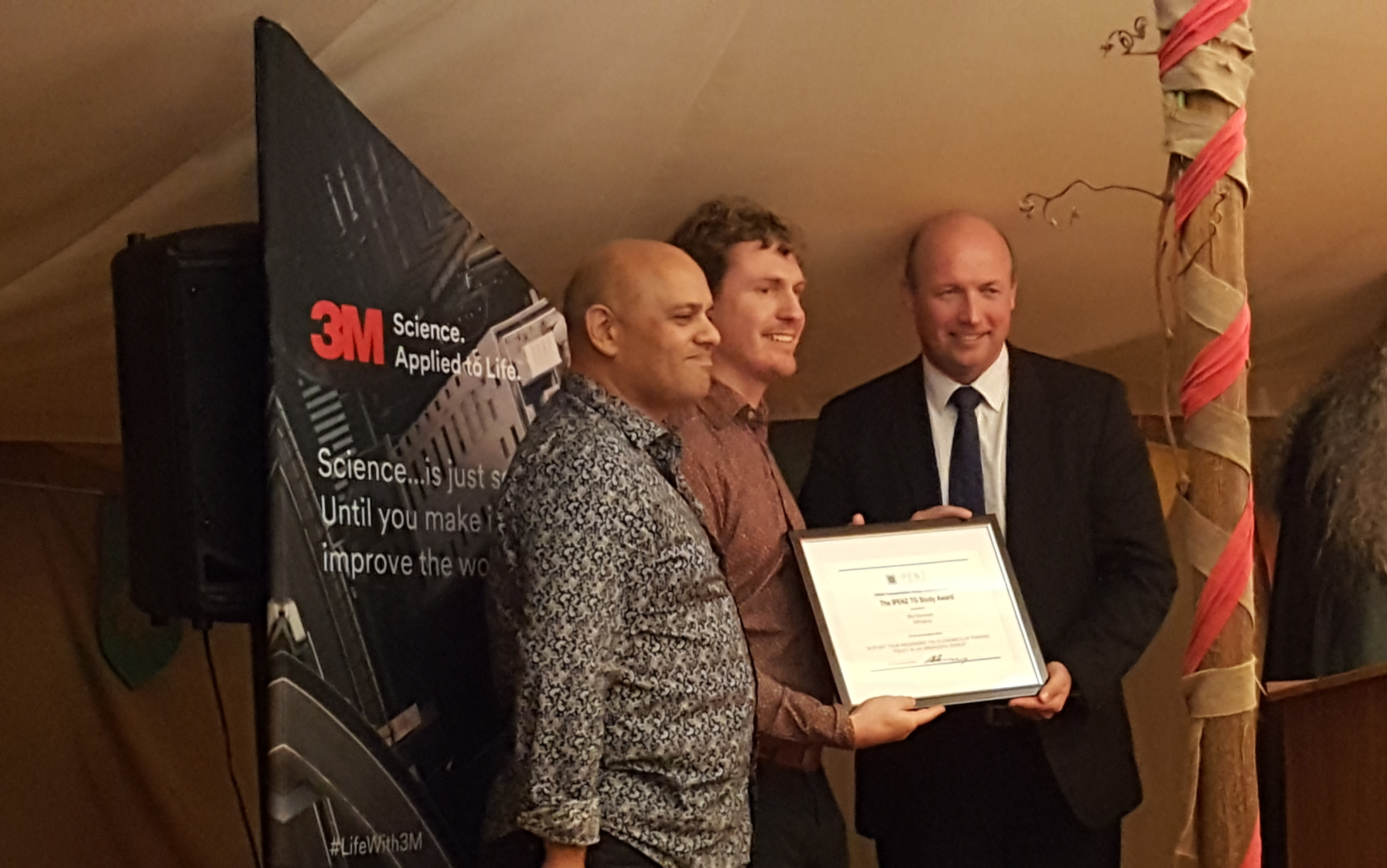IPENZ Transportation Group Study Award 2017
Thu, April 6, 2017 | Company newsCongratulations to Stuart Donovan who was the recipient of the the IPENZ Transportation Group Study Award for 2017! He will be undertaking research into the economics of parking policy, a critical element of transport and urban planning. A summary of his research proposal is below.

Recent decades have seen renewed interest in the effects of parking policy. Popular works by the likes of Shoup (2005) and Litman (2006) have increased awareness of parking’s importance among policy-makers, professionals, and academics. By some measures, parking is one of the most important intermediate goods in modern economies (Inci, 2015). Evidence suggests we have much to gain from adopting more efficient parking policies.
While there is common agreement on the importance of parking, there remains much we do not know about the effects of parking policies. What are the benefits and costs of minimum parking requirements? How do residential parking permits affect transport and land use outcomes? How can the pricing of on-street parking affect congestion? These are just some examples of the sorts of questions I will consider in my research. Our limited knowledge of the effects of parking policies creates challenges for the transport profession.
Current trends suggest these challenges will only increase in the future. New technologies, such as autonomous vehicles, are likely to increase the demand for on-street parking, while reducing the demand for off-street parking. The population of urban areas continues to grow, especially in central areas, placing more pressure on transport infrastructure. Taken together, these technological and demographic trends look set increase the benefits of adopting evidence-based parking policies.
Such issues have prompted me to propose this research into the economics of parking policy in an urbanizing world. I will undertake this research in partial fulfillment of a masters’ degree in economics at the Tinbergen Institute / VU University Amsterdam, which is to be completed between now and September 2017.[1] During my research, I will liaise with policy-makers and researchers in a range of cities, including but not limited to Auckland, Amsterdam, Istanbul, and Lisbon.
[1] The Spatial Economics Department at the TI / VU employs more than 60 researchers, and is ranked within the top 10 institutions in its field worldwide. The department is home to researchers who specialize in applied transport economic issues, including parking, and has strong connections to policy and practice.